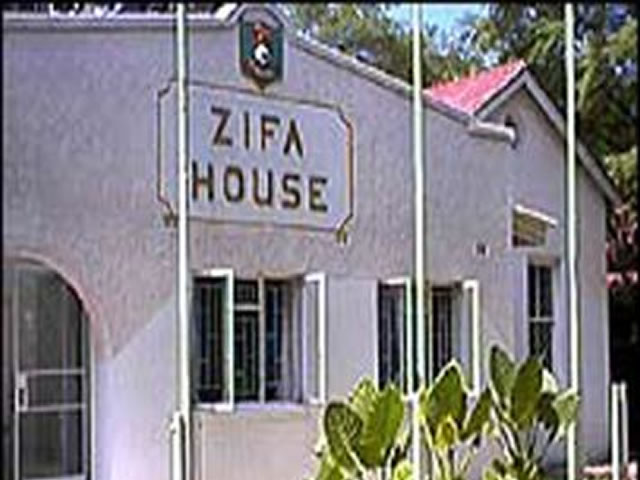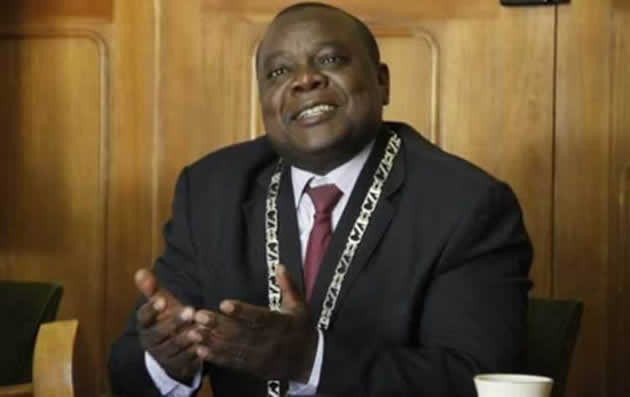ZIFA challenged to lead the way

Petros Kausiyo Deputy Sports Editor
CAPS United board member Nhamo Tutisani has added his voice to the assertion that administrative shortcomings in football are pegging back development but believes that ZIFA and the Premier Soccer League should shoulder the blame for not defining the direction the sport should take.
Tutisani said he had noted that 90 percent of the clubs in the country were not being driven by the tenets of the industry that football had become and were still taking a casual approach to the sport.
The CAPS United board member, who is responsible for marketing at the Green Machine, said he welcomed the challenge posed on administrators by PSL chief executive Kenny Ndebele who reckoned that the clubs’ chiefs and the game’s national leaders needed to emulate coaches and referees and undertake refresher courses.
But Tutisani believes that ZIFA and the PSL should take a leading role in ensuring that there are benchmarks set for administrators whether at club or national association level in order to ensure that those entrusted to govern the sport meet the required standards.
Tutisani said ZIFA, being the custodians of the game in the country, were responsible for ensuring that the policies and the rules that are set out by Fifa and Caf were implemented through their affiliates such as PSL and the Division One leagues.
“ZIFA and the PSL should sanitise the perception about our football which is not being taken seriously at the moment. There is need to identify its strong points such as the fact that there is irrational passion about the sport and capitlalise on the allegiance that people have with the game.
“Football is also a key element of building the spirit of nationalism and with the right administrative structures and personnel we can leverage on that,’’ Tutisani said.
Ndebele, in challenging the game’s leadership, argued that while referees and coaches have gone out of their way to constantly improve on their knowledge of football, the same could not be said of administrators who were surprisingly lagging behind.
“Coaches spend the whole year in class doing Caf C, Caf B or Caf A Licenses which is commendable. The referees also do the same with refresher courses regularly and if coaches are holding at least four workshops a year why not administrators?
“There is need to have administrators also attending more workshops to build on their capacities,’’ Ndebele said.
Tutisani said while he acknowledged the PSL chief executive’s sentiments, he was of the opinion that both ZIFA and the top-flight body had not set the benchmarks nor outlined a clear vision of the path domestic football ought to take to match the international trends.
The CAPS United board member also agreed on the need or regular workshops for administrators but added that it needed to be matched by regular meetings of the assembly of clubs to discuss trends in the football industry.
“Football is no longer the dominant past time activity, it no longer enjoys a monopoly on the catchment area because some talented players are opting to venture into other disciplines like cricket, rugby, basketball, tennis and athletics or even to film and music. Some of the talented players are being lost to other professions.
“The PSL should outline its focus areas and we should brainstorm on how best we can administer sport and football in particular in Zimbabwe within the environment that we operate in, taking into account the economic and socio-political environment and the world trends like recession.
“It is no longer easy come easy go in football anymore. So as football Zifa and the PSL have to come together and set the benchmarks of what it is that we want to achieve and assess whether the clubs are being managed the right way.
“There has been a lot of talk about club licensing but I believe it’s main thrust is on basic infrastructure but we need to appoint the right people to the clubs so that it tallies with the objectives of the league,’’ Tutisani said.
Tutisani argued that a basic stratification of local clubs against those in other leagues such as North Africa, Europe and South Africa, exposed the amateurish manner in which the game is still being administered in the country.
“We are still at a level where there is confusion between what sponsorship is and what a donation is.
“There is also need for clubs to assess how much they can afford to pay players as a basic standard because we have seen cases where clubs promise players huge salaries and bonuses and yet fail to fulfill their part of the bargain and in the end run into problems with the Footballers Union of Zimbabwe.
“Of course, there is no way we cannot pay players well because if you pay peanuts you get monkeys and that means we have to engage in aggressive marketing and if we are to be professional in the game then our administration should also match those requirements and be qualified. It is easier to attract personnel if we can set the right benchmarks.
“We need to harmonise our objectives, our football is not so lucrative as an industry to attract major investors which means we have to constantly look for other revenue streams and I think people misunderstood the ZIFA president (Cuthbert Dube) when he suggested diversifying to look for other income generating projects that are not donations and thought he was deviating from the core business.
“I remember Arsenal making money from their Real Estate project, which helped them to build a new stadium.
“In our football we are so used to get donations disguised as sponsorship,’’ Tutisani said.









Comments